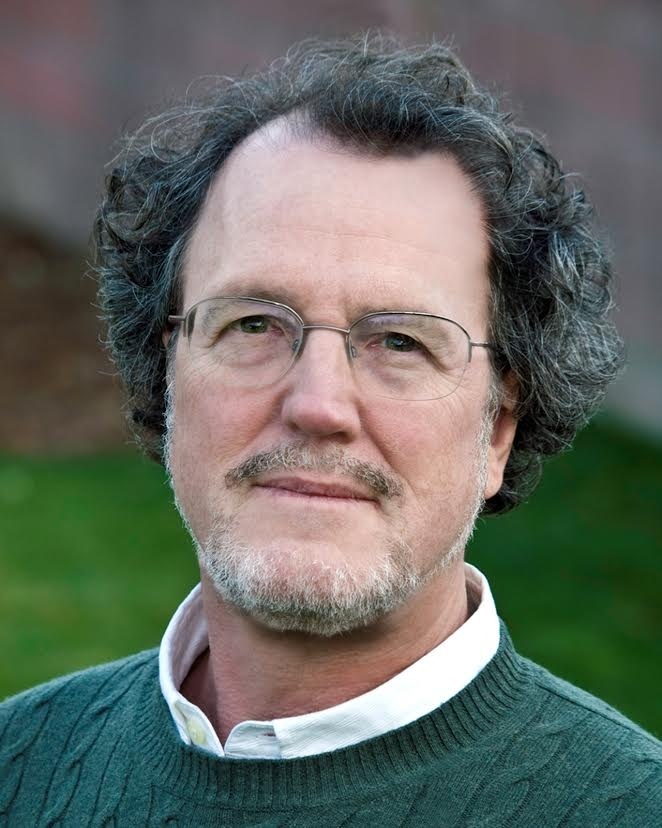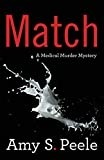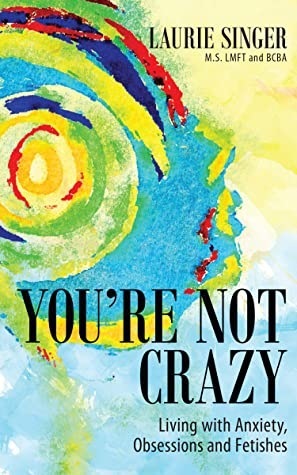Meet David Misch Whose Credits Include the Multiple-Emmy-nominated Mork and Mindy, the Emmy-losing Duckman, the Emmy-ignored Police Squad!, the Emmy- engorged Saturday Night Live, and the Emmy-ineligible The Muppets Take Manhattan

David's credits include the multiple-Emmy-nominated Mork and Mindy, the Emmy-losing Duckman, the Emmy-ignored Police Squad!, the Emmy- engorged Saturday Night Live, and the Emmy-ineligible The Muppets Take Manhattan.
David wrote Funny: The Book (Applause), blogs for The Huffington Post, and his play Pretty Naked People has its world premiere in Los Angeles this winter. His most recent work, A Beginner's Guide to Corruption will be released at the end of July 2016.
David taught comedy at USC, musical satire at UCLA, and lectured at Oxford University, the Smithsonian Institute, and the University of Sydney (Australia), Yale, 92nd St. Y, Actors Studio, New York Public Library; American Film Institute, Burbank Comedy Festival, Grammy Museum (Los Angeles), Lucasfilm; Austin Film Festival, Midwest Popular Culture Association and VIEW Cinema Conference (Torino, Italy).
Norm: Good day David and thanks for participating in our interview.
David: Norm?! Now?! I just got out of the shower! Okay, let me get some clothes on…
(3 minutes later)
Loincloth and socks okay? Cool, let’s do it.
Norm: How and why did you become interested in writing comedy?
David: I did a systematic study of all forms of writing along with the emotional, cultural and spiritual benefits they offered. I then chose comedy because it paid the most.
But seriously…
You know that loud barking noise you make when you think something’s funny? It’s crack to me, especially when I’ve had a role in making it happen. I was a stand-up for awhile and you’d think that it would be be the most rewarding but, while no one’s ever accused me of lacking an ego, for some reason I like it even more when I can sit off to the side and quietly suck up the glory.
As a kid, I devoured Thurber, Benchley, Perelman, then discovered sitcoms, then old comedy movies, and was fascinated with it all.
Norm: What does it take to write comedy? As a follow up, what separates a good script from a great script?
David: Everyone says funny can’t be taught but that’s not entirely true. Certainly a sense of humor can’t be taught but that’s just the beginning of becoming a professional; the principles of comedy can definitely be taught.
In fact, that’s one of the things I do, starting with a course on how comedy works at the University of Southern California, which spawned my first book, Funny: The Book / Everything You Always Wanted To Know About Comedy.
What separates a good script from a great script is whether it makes me laugh so much that it hurts my stomach vs. whether it makes me laugh so much that I become insanely jealous.
Norm: What would you say is more important in providing a writing sample, originality or demonstrating knowledge of the TV writing form?
David: Definitely originality. While it’s distracting to read a script where the writer has no idea what a script should be (increasingly less likely in this day where where script forms and formats are widely available), funny trumps form. And when I say “trumps”, I mean no endorsement of anyone running for president.
Norm: How much of your writing is drawn from real-life experience and can you give an example of an important lived-moment that made it on a show?
David: I actually hate real-life experience. It’s so ordinary. I like made-up things and most of my scripts are total flights of fancy (though based on or inspired by boring real-life experiences).
I once dated a doctor (we stopped dating when we got married) and my manager thought a sitcom about a comedy writer dating a doctor would be great. I didn’t, so he had someone else develop it and pitch it to a network, who hated it. Maybe that’s why I avoid “real” stuff; ABC put my life in turnaround.
I did write real once; a TV pilot, later staged by a theater company, which took events directly from my life. It was fun sitting in the audience with my wife as an actress playing her came out in smock and face-mask after attempting to get rid of a raccoon with coyote urine. (Long story.)
Norm: What would be your advice for young comedy writers looking to break in? What genre, what kind of spec to write, just what advice in general about their career?
David: Give up! Quick! Find something more likely to bring you success, like breeding racing cows.
The odds of success are long. And doing it’s really hard. Long and hard, really long and really hard.
Wait, that didn’t come out right.
I think the most exciting thing that’s happened in comedy is that series of tubes we call The Internet; writing and producing your own stuff then getting it in front of an audience has never been easier. I don’t know if the odds of success have improved but at worst you’ll hopefully have something really good that exists somewhere other than paper.
Norm: In your opinion, what is the most difficult part of the comedy writing process?
David: It’s all quite easy except for the writing part, that’s a bitch.
My advice to writers is to write, and to remember that all writing is rewriting. I’ve never done anything (including this interview) that I haven’t rewritten multiple times. And there’s also that old saw, “kill your babies” – the thing you love most, the thing that got you started writing that script/story/novel in the first place, may be the thing that must die to make the piece live.
Norm: What did you find most useful in learning to write comedy? What was least useful or most destructive?
David: Especially (but not necessarily exclusively) for screenwriting, it’s essential to hear the words out loud, spoken by actors or yourself. The infinite possible flaws of your dialogue become brutally, but helpfully, exposed.
Other people’s opinions are critical though you have to learn how to judge. Everyone’s opinion has value but you often have to figure out what they “really” mean. Also, some people are idiots.
Norm: What was it like working on Mork and Mindy and could you describe the writing process for writing the episodes as well as for Duckman?
David: “Mork” was done in what was then the traditional process – write script; get notes; write another draft; script goes to “writer’s room” with a dozen people tearing it apart and coming up with better lines.
Then to the actors, rehearsals, and more rewrites.
“Duckman” was created by writers who disliked that process; we wrote scripts, they gave notes, we rewrote… and that was it.
Especially rewarding was the recording process; Jason Alexander would put the script on a music stand and say it word-for-word. “Hm, I think I missed an ‘uh’ in that last speech, should I go back and do it again?” “Yes.” Ooo that was nice.
Norm: Could you tell us a little about A Beginner's Guide to Corruption ?
David: My newest book? Gosh, I had no idea you were going to bring that up! It almost seems crass to talk about it in this type of forum, almost as if to this point I was just spouting whatever nonsense came into my head until I could get to the real reason I’m here, promoting the hell out of a product which has the potential of making me rich within my wildest dreams.
I love corruption. Seriously. I find it fascinating how people lie to themselves and (even better) others to excuse the fact that they’re just assholes who want stuff they can’t get honestly.
A Beginner’s Guide To Corruption (available at fine Internets everywhere) looks at politics, finance and romance to see how corruption as a route to wealth and happiness is fast, easy and effective, other than when it takes years, requires enormous effort and doesn’t work.
Among my favorite examples is Newt Gingrich, who had an affair with an aide while impeaching Bill Clinton for having an affair with an aide, while dumping his first wife as she lay on a hospital bed dying of cancer. When asked how he could do that, he said “There’s no question that, partially driven by how passionately I feel about this country, things happened in my life that were not appropriate .” Beautiful.
Norm: What motivated your to write the book and what do you hope to accomplish with it?
David: Motivation: Money. What I hope to accomplish: To end all corruption. But I’ll settle for the money thing.
Norm: What was the most difficult part of writing the book and what did you enjoy most about writing it?
David: I’d been collecting examples of the most egregious corruption for a number of years so I’d done most of the research. (Although that reminds me of a playwright joke. One playwright passes another in the street. Playwright 1: “How’s the new play going?” Playwright 2: “It’s all done! All I have to do now is dialogue it.”)
In fact, the toughest (and most expensive) part of the process was buying the damn photos. There are lots, because I like photos. My favorite accompanies a brief section on a certain presidential candidate; a photo of an ear of corn with silk sticking out the top, labelled “Donald Trump”.
Norm: Where can our readers find out more about you and your work?
David: The website Hot Writers Over 60 has a nice photo spread. Otherwise, MY WEBSITE for all your David Misch needs.
Norm: What do your plans for future projects include?
David: Right now I’m in the process of choosing an ensemble for a trip to Costco. I also have a play opening in a few months, “Pretty Naked People” (in which no one is naked) starring Paul Provenza, and I’ve begun Rogaine treatments in anticipation of tearing out my hair when all my brilliant dialogue turns out to be, well, not.
Beyond that, I’m open to suggestions.
Norm: As this interview draws to a close what one question would you have liked me to ask you? Please share your answer.
David: “How, at your advanced age, do you look so damn good?” The answer, which seems obvious, is that my pores secrete KY Jelly. (This is useful in multiple situations.)
Norm: Thanks once again and good luck with all of your future endeavors.
"
Articles from Norm Goldman
View blogThe depiction of female leads in literature has undergone significant transformation throughout the ...

In Match: A Medical Murder Mystery, Amy S. Peele crafts a chilling intricate mystery around the inv ...

Author: Laurie Singer, M.S. LMFT, BCBA · Publisher: Laurie Singer Behavioral Services · ISBN: 978-1- ...
You may be interested in these jobs
-
Adjoint ou analyste principal, Analyse des coûts, Analyse et planification financière
Found in: Talent CA C2 - 1 week ago
CPP Investments Toronto, Canada Full timedu poste · L'adjoint ou analyste principal, Analyse des coûts est responsable de soutenir la stratégie opérationnelle de l'organisme afin qu'elle soit alignée sur les objectifs financiers, tout en veillant à ce que les ressources soient affectées de manière optimale pour soutenir ...
-

Administrateur de succursales et Directeur-adjoint de succursales Scotiamcleod
Found in: beBee S2 CA - 1 month ago
Banque Scotia Montreal, Canada Full timeNuméro de la demande: 195293 · ScotiaMcLeod, l'un des piliers de Gestion de patrimoine ScotiaMD, a acquis sa réputation d'intégrité grâce à son excellent service et à ses conseils avisés en matière de placement. Nos conseillers et nos équipes se targuent d'explorer des approches ...
-
bookkeeper
Found in: Talent CA 2 C2 - 1 day ago
Auto Hut Truck Centre Brampton, CanadaEducation: Secondary (high) school graduation certificate · Experience: 7 months to less than 1 year · Tasks · Calculate and prepare cheques for payroll · Keep financial records and establish, maintain and balance various accounts using manual and computerized bookkeeping systems ...


Comments